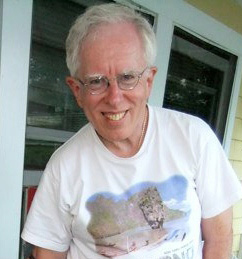 The union movement is in real trouble. According to the Bureau of Labor Statistics, unions currently unite just 11.3% of all workers and only 6.6% of the private sector workforce. Public sector employees fare better: 35.9% of us are represented by unions.
The union movement is in real trouble. According to the Bureau of Labor Statistics, unions currently unite just 11.3% of all workers and only 6.6% of the private sector workforce. Public sector employees fare better: 35.9% of us are represented by unions.
Globalization, “off-shoring” and outsourcing explain quite a bit of the decline. Another big chunk of it is due to the ferocious assault on labor that has been going on for at least the last 30 years. The rich accuse us of class warfare, but most of the “war” has been waged by them.
Globalization and a frontal assault don’t explain everything, though. Dating back to the start of the Cold War, when radical labor leaders and their unions were expelled or raided, the labor movement began to lose its heart and soul.
Why do I say that? Because workers come together and form unions not just for better wages and working conditions, but for a better life, as well. Working together on the job, we develop a sense of solidarity with one another. This sense of solidarity carries over into broad, union-wide struggles for a better deal, but also into the communities in which we live.
This means the fight for better wages and working conditions expands into one for better all-around living conditions. That’s how working people become very conscious of the society around them and unite with their class brothers and sisters across the country and around the world. Leaders rise from the rank-and-file who express the ideas and feelings of their fellow workers in what may be more articulate ways. Together, the members and leaders fight to improve their society.
Some of us are not “even” in unions, yet we’ve been fighting for ourselves really well -- at Wal-Mart, at Dunkin’ Donuts, at a lot of other fast food restaurants, childcare agencies, taxi gathering points. We’re increasingly turning to our allies in the neighborhoods, in civil and human rights organizations, fighting back together in places like Raleigh, Chicago, San Jose, Honolulu, Newark, New York City. We’re telling the gas exploration companies to ‘get the frack out of here.’
That’s the future of the labor movement. Unions and collective bargaining, it’s true, but also loose associations, worker centers, community groups, social justice organizations. We are starting to realize that we’re all in this together. The new heart and soul of the labor movement will develop in the communities. That’s where new grassroots leaders will arise from. Class struggle unionism will involve almost our whole class -- the 99 percent -- not just a fraction of the class.
We will rebuild the labor movement as an all-workers’ movement. We will fight, and we will win.▪
Greg King is a long-time City of Boston employee and labor activist.
If you’d like to write something for Member Speakout, contact Rand Wilson at rwilson@seiu888.org.
